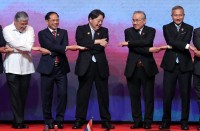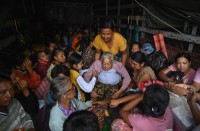(LAPU-LAPU CITY, Cebu) Asia Pacific countries should invest in education and social protection to address inequality within their economies and this includes the Philippines, a World Bank official said on Friday.
In his message during the APEC Finance Ministers’ Meeting here, World Bank Vice President for East Asia and the Pacific, Axel van Trotsenburg, said most poor households rely on labor as their only source of income.
Making labor productive through quality education and skills trainings is crucial to achieving inclusive growth in the region, he said.
“Primary and secondary education systems should increasingly focus on quality teaching and better learning outcomes by strengthening the autonomy and accountability of education institutions,” van Trotsenburg stated during the session on “Global Economic and Financial Outlook, Growing Inequality and Regional Connectivity.”
“In addition, there remains significant scope to promote wider and more equal access to higher education among the poor.”
At the same time, van Trotsenburg advocated the expansion of social protection among APEC economies, noting the limited coverage of such schemes as health insurance, unemployment insurance, and pension system across much of middle-income East Asia.
Members of the APEC must consider introducing or expanding well-targeted conditional cash transfer (CCT) programs to provide direct support to those who are at the margins of society, he said.
Citing the experiences of the Philippines, Mexico, Peru, and Chile, he said that CCT programs help boost school attendance, preventive health care, and nutrition among the poor and vulnerable, significantly improving their lives.
He cited the rigorous selection of recipients based on geographical and socioeconomic factors, constant monitoring and evaluation, and paying recipients directly as the key features of the social safety net program.
Despite the rapid growth that lifted millions in East Asia out of poverty, van Trotsenburg said there are still challenges ahead.
He pointed out that 40 percent of the region’s population — or almost 800 million – continue to live on less than $3 a day, in terms of purchasing power parity.
“These people might fall right back into poverty if the global economy takes a turn for the worse, or if they face health, food price and other shocks,” he said.
He urged the APEC economies to continue or accelerate reforms to sustain growth, which is critical to improving living standards, especially of those at the lower end of income distribution.
There is a need for APEC members to boost investment in physical infrastructure that would help reduce production and transport costs, he added.
Developing East Asia’s infrastructure investment is a big challenge, he said, noting that 142 million households still have no access to electricity while 600 million lack access to adequate sanitation. (PND)







